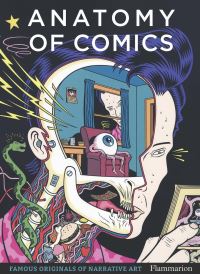Description
When the film Dogtooth played for the first time to press and public at the 2009 Cannes Film Festival, it was clear to everyone in the room that its maker harboured a perverse fascination with how we develop as human beings, and how that development can be manipulated to make entertainingly transgressive movies. That filmmaker was Greece’s Yorgos Lanthimos, and over the intervening years he has assiduously ploughed this lively intellectual furrow with films like Alps, The Lobster, Killing of a Sacred Deer and The Favourite. This interest in brain function, learning techniques, and psychological power-plays has always remained present, and surfaces once more in his latest – and possibly greatest – work, Poor Things.
This new film is the product of a connection that was made with the famous Scottish novel by the author Alasdair Gray, about a Frankenstein-like creator and the daughter he builds and then sends out into the world. That daughter is named Bella Baxter and she is played in the film by Emma Stone. While the film is packed to the gills with pertinent questions about how our bodies function as physical tools for learning and loving, it’s powered by a central performance of such commitment that it’s hard to see how Stone could return to mainstream comedies again. It’s Lanthimos’ most ambitious film to date, an intimate epic that encompasses the gamut of human development while threading the needle between his formative strangeness and the type of release that’s central to big awards ceremonies (it already nabbed the Golden Lion at the 2023 Venice Film Festival).
In this issue, we speak to the director about his long and winding relationship with the novel and how he received Gray’s blessing to make it. We also meet the craft team behind this eye-popping marvel, and how they helped refashion an early-19th century Europe into a colourful playground of expressionist delights.
On the cover
Hamburg-based illustrator Julia Plath places Emma Stone on the slab with this amazing portrait which taps into the film’s central themes of manipulation and empowerment. Other illustrators inside the issue include Agata Samulska, Stéphanie Sergeant, Régina Dargère, Przemysław Berestko and Andrew Bastow.






Reviews
There are no reviews yet.